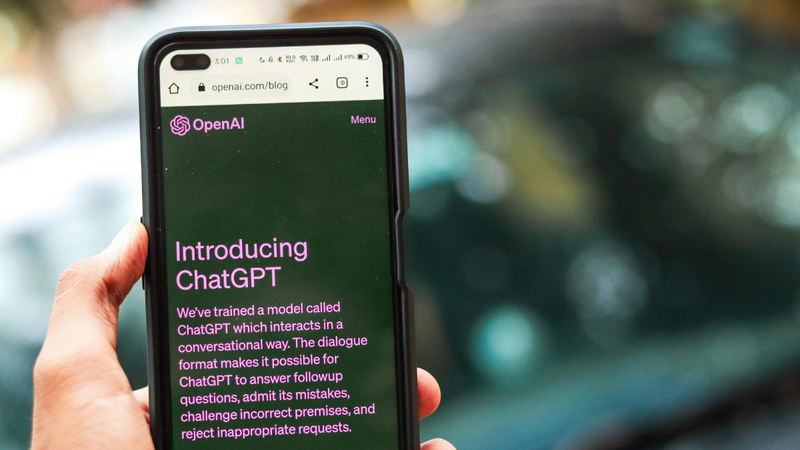When it comes to AI adoption in contact centers, the biggest challenge isn’t the technology. It’s the workflow. AI has the potential to drive efficiency, improve customer experiences, and boost compliance, but it’s not magic. The real issue? Many organizations are trying to fit AI into outdated workflows. They’ve got antiquated scripts, legacy quality assurance (QA) protocols, and outdated escalation paths that make it difficult for AI to be fully integrated and effective.
At The49, we’ve seen time and time again that when AI is forced to work around these existing processes, you get frustration instead of impact. The secret to making AI work at the front line is about rethinking your workflows—adapting them so that AI works with your team, not against them.
The problem: Workflow issues holding back AI adoption
For many health insurance contact centers, implementing AI feels like trying to fit a square peg into a round hole. AI tools are impressive, but when your existing workflows don’t accommodate them, you’re setting yourself up for failure.
In many cases, these default workflows are clunky and don't evolve at the same pace as AI technology. Here are some common issues that arise:
- Outdated scripts: Agents are still relying on old, inflexible scripts that AI could easily improve. AI-powered contextual prompts could guide agents, but if the script doesn’t allow for flexibility, AI will be underused. In regulated markets, these scripts may need to be approved and filed, making dynamic AI solutions challenging to implement.
- Legacy QA protocols: Traditional QA reviews are often random, looking at a small sample of calls, whereas AI can prioritise reviews based on specific compliance or emotional triggers, improving efficiency and accuracy.
- Outdated escalation paths: In complex environments like health insurance, AI can identify when a call needs escalation based on sentiment analysis or content. But if escalation paths aren’t aligned with AI, you miss opportunities to resolve issues quickly.
These limitations are particularly pronounced in health insurance, where agents are dealing with complex, regulated customer interactions. Trying to force AI into these outdated workflows doesn’t allow it to reach its full potential.
The solution: Rethinking the choreography of interaction
The key to AI success is not just in the technology but in how it fits into your workflow. To make AI truly effective at the front line, contact centers need to rethink how interactions are structured.
Here are a few ways to adapt workflows to allow AI to work for agents rather than against them:
- Intelligent prompts: Instead of following rigid scripts, agents can follow AI-powered prompts that help them navigate the conversation more efficiently. These prompts are context-aware, meaning they evolve based on what the customer is asking and where the conversation is heading. This results in faster, more accurate responses.
- Compliance triggers: AI tools can spot potential compliance issues as the conversation unfolds. If an agent is about to provide incorrect or incomplete information, AI can flag the issue in real time and provide the agent with the correct course of action.
- Training and upskilling: With AI, training can evolve as quickly as the technology itself. AI doesn’t just assist in day-to-day operations—it also acts as a training tool for new agents. By guiding agents through real-time customer interactions, AI can help them ramp up faster and gain confidence.
- AI-prioritised QA reviews: With AI’s ability to analyse every interaction, QA can be focused on the high-priority calls rather than random sampling. This ensures that every call is audited for compliance, emotional tone, and overall quality, improving both agent performance and customer satisfaction.
When workflows evolve to include AI, it doesn’t just support the agent—it enhances the entire customer experience. From first-contact resolution to compliance checks, AI is there to ensure that no part of the process is left to chance.
How The49 helps design AI-enabled workflows
At The49, we believe that AI adoption can only be successful when it's integrated into well-designed workflows. That’s why our process starts with understanding your existing workflows and pain points through workshops with your operations, compliance, and frontline teams.
We don’t believe in a one-size-fits-all solution. Every contact center is different, and so is the AI that works best for them. That’s why we dive deep into what’s working, what’s not, and where AI can have the most impact. We help you identify blockers and reimagine workflows around AI capabilities.
Once we’ve identified where AI fits into the new workflow, we prototype in real-world conditions. This means testing AI solutions in live environments, seeing how it works in real time, and refining it based on results. After testing, we scale the solution to fit seamlessly into your operation.
Our goal is to make AI a natural part of your workflow, where it amplifies agent performance and leads to better outcomes for your customers.
AI won’t fix a broken process—but the right partner can help you redesign it. By rethinking your workflows and integrating AI seamlessly, you can ensure that AI delivers real results. It’s about making the most of what you already have and optimising it for the future.
At The49, we specialise in helping health insurance contact centers transform their workflows to work with AI rather than against it. If you’re ready to start integrating AI into your workflows, let’s chat about how we can help you move faster and deliver better results.
Ready to redesign your workflows and make AI an integral part of your contact center? Get in touch with The49 to find out how we can help you streamline your processes and improve customer service.




